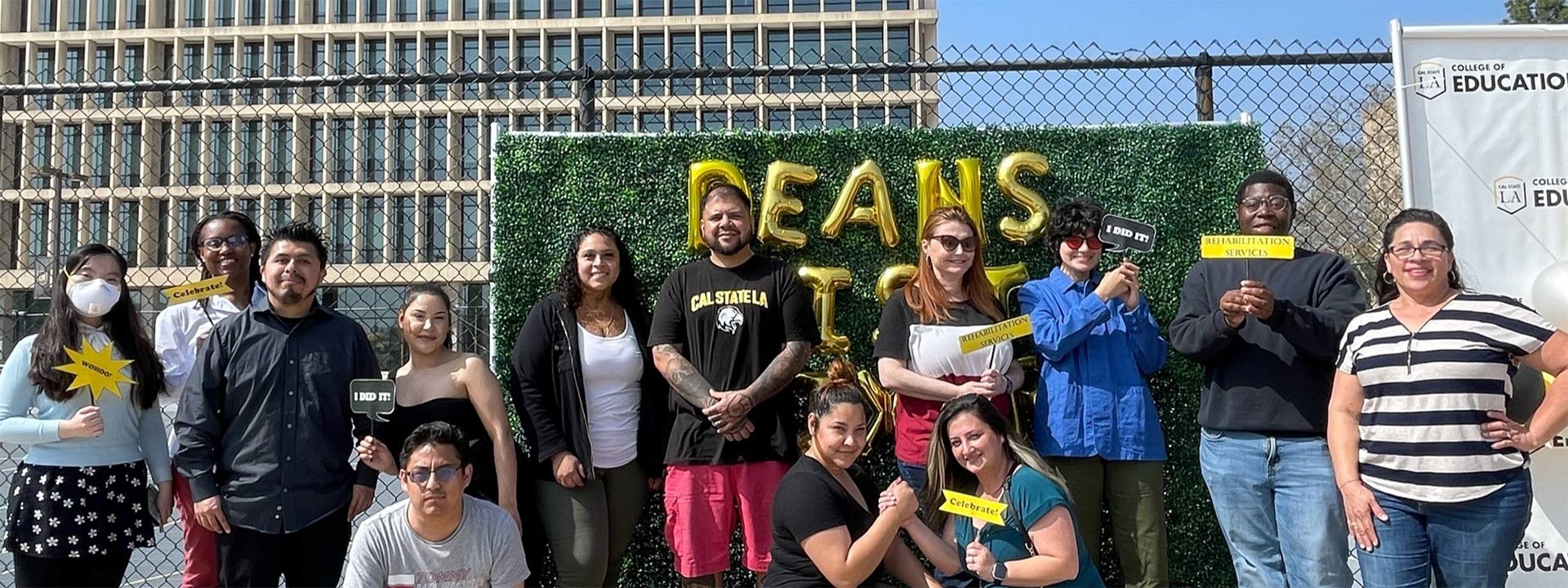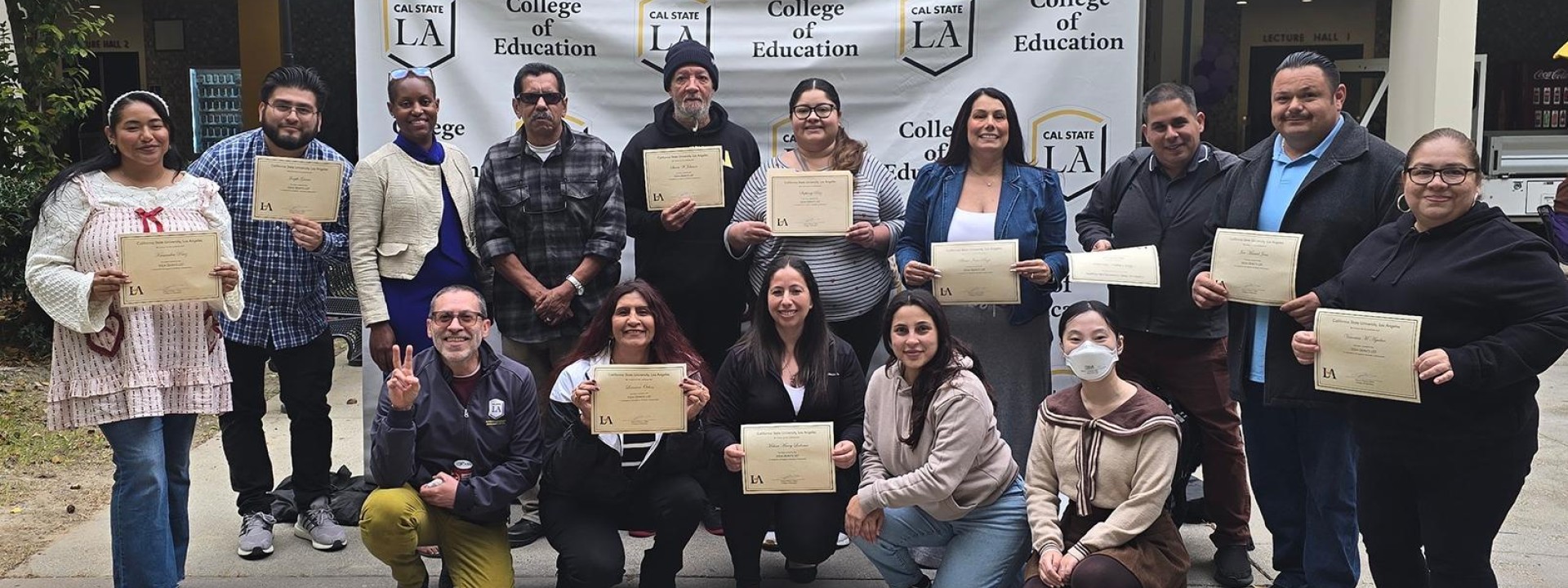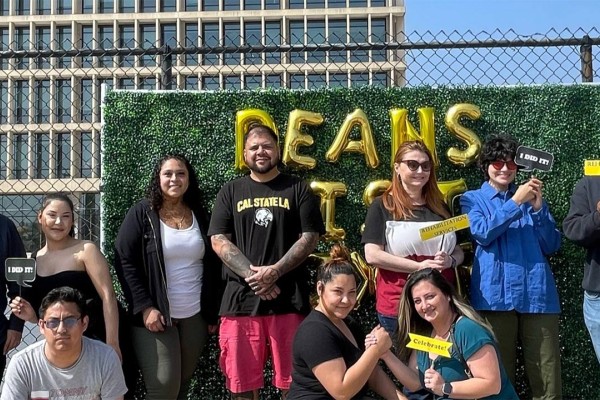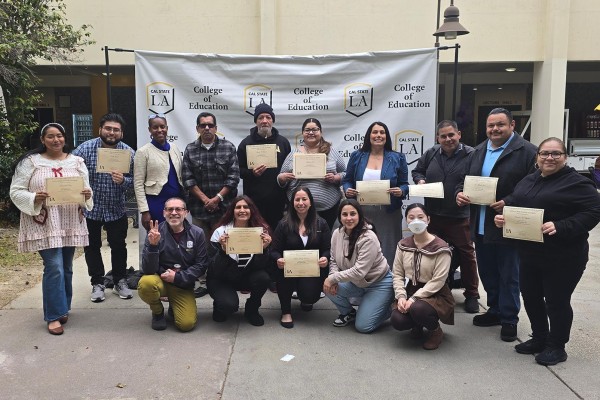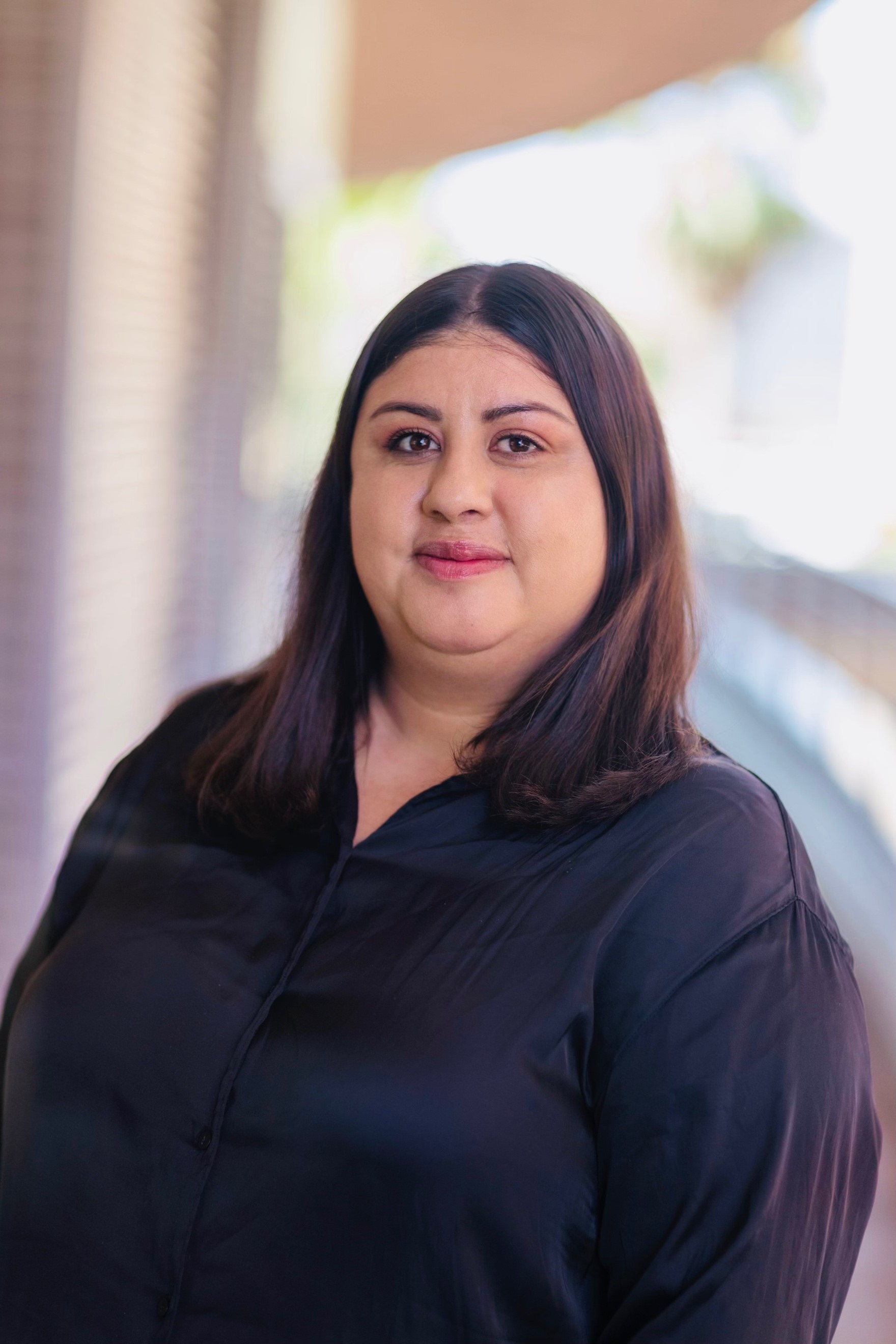Do you want a career helping others?
Rehabilitation Services is a diverse field within the general area of human services which provides services for people who have physical, emotional, and intellectual disabilities, and for individuals with economic and social disadvantages.
- Example of populations we serve: physical disabilities, mental disorders, learning disabilities, autism spectrum disorder, substance use disorders, veterans, domestic violence, homelessness, formerly incarcerated individuals
With a Bachelor of Science degree in Rehabilitation Services, one may find work in the human services field. Here are some samples of professions and settings where our alumni work for your reference:
Sample of Professions
- Human Services Caseworker/Case Manager
- Health Services Coordinator
- Homeless Shelter Coordinator
- Hospice Coordinator
- Job Coach
- Job Developer or Job Placement Specialist
- Supported Employment Coordinator
- Disability Center-resident Counselor
- Domestic Violence Coordinator
- Parole and Probation Officer
- Vocational Training Facility Instructor
Settings Where Our Alumni Work
- Department of Rehabilitation (DOR)
- Veteran's Administration (VA)
- Mental health agencies
- Public and private schools
- Applied Behavior Analysis (ABA) clinics
- Domestic violence agencies
- Shelters for homeless populations
- Community non-profit organizations
- Religious institutions
- Supported living agencies
- Colleges and universities
Program Objectives and Outcomes
- Students will develop skills for accessing community resources that serve individuals with rehabilitation needs.
- Students will attain appropriate interviewing and communication skills.
- Students will acquire technical writing skills.
- Students will be able to integrate information to provide a diverse range of services to clients with rehabilitation needs.
- Students will learn to advocate and teach advocacy skills to their clients to integrate people with disabilities within the community.
- Students will master skills to maximize independence for people with disabilities.
- Students will obtain skills in working with culturally diverse individuals within an urban setting.
- Students will apply learned knowledge and skills to real-life settings.
- Students will be able to provide services to persons with rehabilitation needs, working in collaboration with community agencies within an urban setting.
Program Learning Outcome 1: Knowledge Base in Rehabilitation
Students will demonstrate fundamental knowledge and comprehension of the major concepts, theoretical perspectives, historical trends, and empirical findings of the rehabilitation profession.
- 1.1 Describe disability and its impact on the individual
- 1.2 Define key concepts, principles, and history in rehabilitation
- 1.3 Demonstrate experiential knowledge of a variety of rehabilitation settings
Program Learning Outcome 2: Scientific Inquiry and Critical Thinking
Students will use scientific reasoning and problem-solving, including effective program evaluation strategies.
- 2.1 Identify and analyze observed problems in rehabilitation settings
- 2.2 Use rehabilitation literature to choose and evaluate best practices
- 2.3 Engage in creative thinking and problem-solving
- 2.4 Discuss disability-related research and program evaluation
- 2.5 Identify and discuss sociocultural factors in research and data interpretation
Program Learning Outcome 3: Ethical and Social Responsibility in a Diverse World
Students will choose ethically and socially responsible behaviors for use in professional and personal settings in a landscape that involves increasing diversity.
- 3.1 Apply ethical standards to practice in rehabilitation settings
- 3.2 Exhibit the professional responsibility to advocate for individuals with disabilities
- 3.3 Incorporate values that build community at local, national, and global levels
Program Learning Outcome 4: Communication
Students will demonstrate competence in a professional presentation.
- 4.1 Demonstrate effective writing for different purposes
- 4.2 Demonstrate professional presentation skills
- 4.3 Collaborate professionally with various populations
Program Learning Outcome 5: Professional Development
Students will demonstrate the use of appropriate counseling skills, effective self-reflection, teamwork skills, and knowledge of career preparation.
- 5.1 Apply counseling skills to career goals
- 5.2 Develop self-awareness and self-efficacy
- 5.3 Demonstrate teamwork capacity
- 5.4 Disseminate acquired knowledge into practice
Mission statement
BS in Rehabilitation Services Program
Cal State LA’s Rehabilitation Counseling Association (RCA) is committed to making a positive difference in the field of rehabilitation through providing members the opportunities for career development and community engagement. RCA aims to work directly with the community in a collaborative effort to enhance the quality of life for all.
Minor in Rehabilitation Services
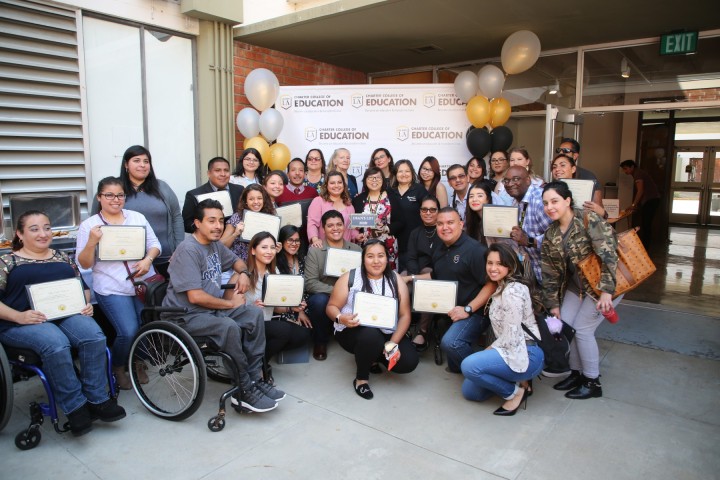
The Department of Special Education and Counseling offers a minor in Rehabilitation Services. It is a program designed to provide valuable preparation for students majoring in psychology, sociology, social work, criminal justice, and other fields for occupations related to the needs and activities of people with disabilities.
Here is the Program Catalog.
Program Facutly
Please contact program faculty for more information.
Natalie F. Williams Awodeha, Ph.D., CRC, BCBA
Title: Co-Program Coordinator, Assistant Professor of Rehabilitation Services (B.S.)
Office: KH-C2057
Phone: 323-343-4400 (Main Office)
Contact Email: [email protected]
Yunzhen "Judy" Huang, Ph.D., CRC
Title: Co-Program Coordinator, Assistant Professor of Rehabilitation Services (B.S.)
Office: KH-C2038
Phone: 323-343-4400 (Main Office)
Contact Email: [email protected]
Denice Rios Mojica, Ph.D., BCBA-D
Title: Assistant Professor of Rehabilitation Services (B.S.) and Master’s in Counseling Option in Applied Behavior Analysis
Office: KH-A2034
Phone: 323-343-4400 (Main Office)
Contact Email: [email protected]
Program Advisors
Castillo, Brian
Title: Academic Advisor (Rehab and ULRN Freshman and Sophmore counseling)
Office: KH C2094A
Phone: (323) 343-6064
Email: [email protected]
Arellano, Jesus
Title: Academic Advisor (Rehab and ULRN Jr and Senior counseling)
Office: KH D2078
Phone: (323) 343-4324
Email: [email protected]
